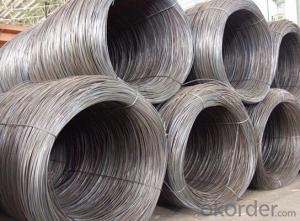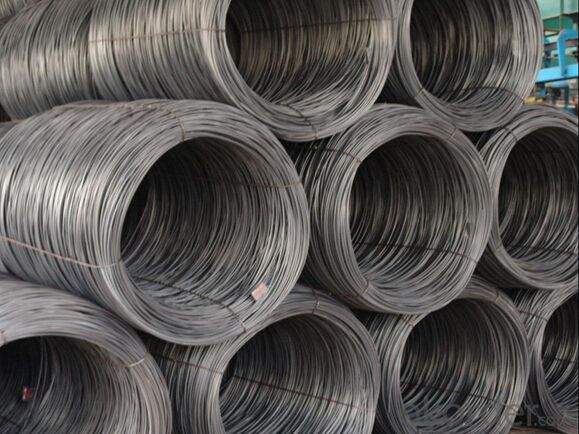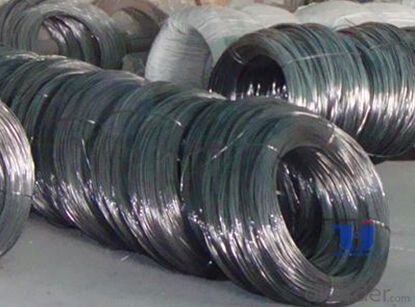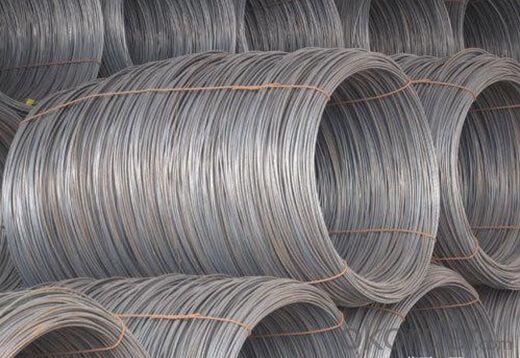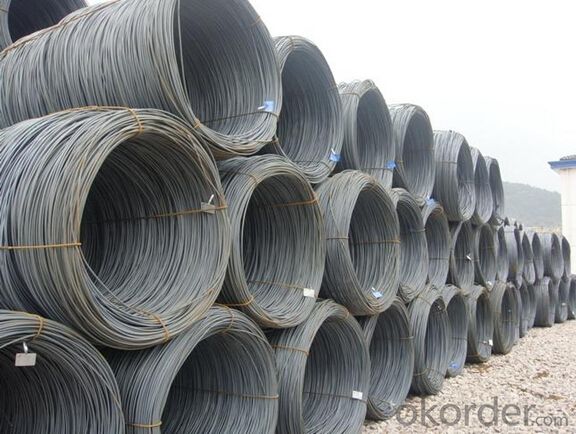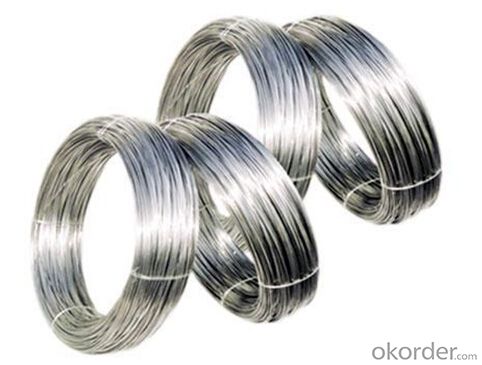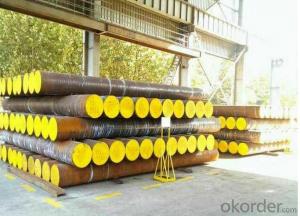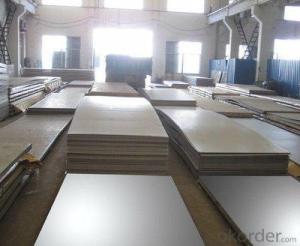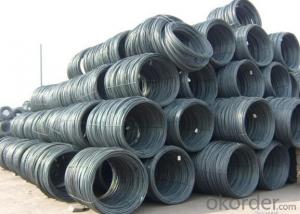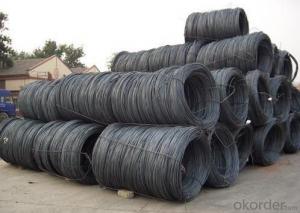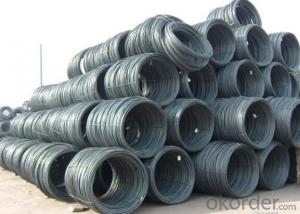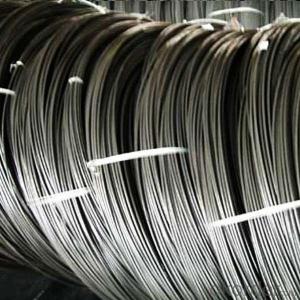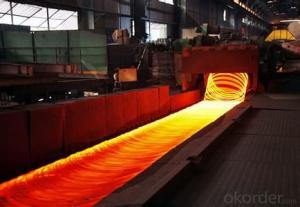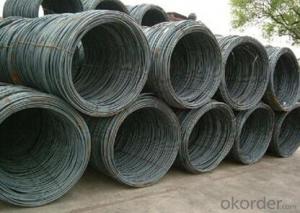Steel Wire Rod in Coils Q195-Q195L High Speed Wire Rod
- Loading Port:
- Tianjin
- Payment Terms:
- TT OR LC
- Min Order Qty:
- 25 m.t.
- Supply Capability:
- 10000 m.t./month
OKorder Service Pledge
OKorder Financial Service
You Might Also Like
Specification
Hot sale Steel Wire Rod in Coils Q195-Q195L High Speed Wire Rod
Specification
Packing: | With Bundles or Standard Seaworthy Packing |
Size: | Diameter 5.5mm--10mm |
Standard: | GB/ASTM/JIS/DIN |
Productivity: | 500 Ton/Month |
Unit Price/Payment: | T/T With 30% Advance Payment, The Balance Against |
HS Code: | 7214200000 |
Min. Order: | 1 Ton |
Composition: | Ferrous Steel Scrap |
Technique: | Cold Drawn |
Surface Treatment: | Plain |
Steel Grade: | Q195, Q215, Q235, SAE 1006, 1008,1010,1012,1016,1018, ect |
Application: | Structural Steel Bar |
Type: | Carbon Steel Bar |
Shape: | Round, Long |
Chemical Composition
Grade | Chemical Composition(%) | |||||
C | Mn | Si | S | P | Cr | |
SAE1006B | 0.03~O.07 | ≤0.32 | ≤0.30 | ≤0.045 | ≤0.040 | 0.3-0.35 |
Mechanical properties | ||||||
Yield strength(N/mm2) | Tensile strength(N/mm2) | Elongation(%) | ||||
250-280 | 350-380 | ≥32 | ||||
Grade | Chemical Composition(%) | |||||
C | Mn | Si | S | P | Cr | |
SAE1008B | 0.10max | 0.3~O.50 | 0.15max | 0.050max | 0.040 max | 0.3-0.35 |
Mechanical properties | ||||||
Yield strength(N/mm2) | Tensile strength(N/mm2) | Elongation(%) | ||||
≥195 | 315-430 | ≥30 | ||||
Company Information
CNBM International Corporation is the most import and export platform of CNBM group(China National Building Material Group Corporation) ,which is a state-owned enterprise, ranked in 270th of Fortune Global 500 in 2015.
With its advantages, CNBM International are mainly concentrate on Cement, Glass, Iron and Steel, Ceramics industries and devotes herself for supplying high quality series of refractories as well as technical consultancies and logistics solution.
After-sale service | CNBM provides the services and support you need for every step of our cooperation. We’re the business partners you can trust; you can relax and get on with doing business. |
For any problem, please kindly contact us at any your convenient time, we’ll reply you in our first priority within 24 hours | |
Advantages | Industry experience over 20 years. |
Shipment of goods -More than 70 countries worldwide. | |
The most convenient transport and prompt delivery. | |
Competitive price with best service. | |
High technical production line with top quality products. | |
High reputation based on best quality products. |
Products Show
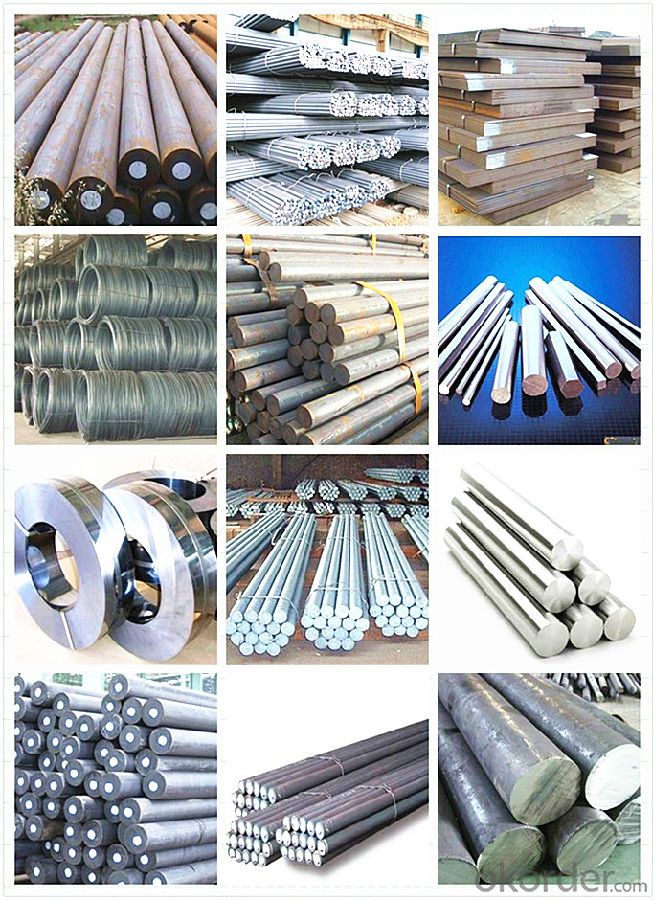
FAQ
Are you a trading company or manufacturer? | Manufacturer |
What’s the MOQ? | 3 metric ton |
What’s your delivery time? | 15-35 days after downpayment received |
Do you Accept OEM service? | Yes |
what’s your delivery terms? | FOB/CFR/CIF |
What's the Payment Terms? | 30% as deposit,70% before shipment by T/T |
Western Union acceptable for small amount. | |
L/C acceptable for large amount. | |
Scrow ,Paybal,Alipay are also ok | |
Why choose us? | Chose happens because of quality, then price, We can give you both. |
Additionally, we can also offer professional products inquiry, products knowledge train (for agents), smooth goods delivery, excellent customer solution proposals. | |
What's your available port of Shipment? | Main Port, China |
What’s your featured services? | Our service formula: good quality+ good price+ good service=customer's trust |
Where are your Market? | Covering more than 160 countries in the world |
- Q: How is shock-resistant alloy steel used in the production of impact-resistant parts?
- Shock-resistant alloy steel is used in the production of impact-resistant parts to enhance their durability and toughness. This type of steel is specifically designed to withstand high impact forces, making it ideal for applications where parts are subjected to intense shock or sudden impact loads. By incorporating shock-resistant alloy steel into the manufacturing process, impact-resistant parts can better absorb and distribute the energy from impacts, thereby reducing the risk of damage or failure.
- Q: What are the different heat treatment furnaces used for special steel?
- Special steel is commonly subjected to various heat treatment processes using different types of furnaces. Each furnace serves a specific purpose and is engineered to create the ideal heating and cooling conditions necessary for the steel to attain its desired properties. One of the furnaces employed for special steel is the annealing furnace. This furnace utilizes a technique called annealing, which entails heating the steel to a specific temperature and then gradually cooling it to enhance its softness and ductility. To prevent oxidation during the process, annealing furnaces are often equipped with controlled atmospheres. Another type of furnace utilized for special steel is the quenching furnace. Quenching is a process that involves rapidly cooling the steel to increase its hardness. Quenching furnaces are designed to provide the required cooling rate and may utilize specialized cooling mediums like oil or water to achieve the desired outcome. Tempering furnaces are also commonly employed for special steel. Tempering involves heating the steel to a specific temperature and subsequently cooling it to enhance its toughness and reduce brittleness. These furnaces enable precise temperature control throughout the tempering process. Furthermore, carburizing furnaces are utilized for special steel. Carburizing is the process of introducing carbon into the surface of the steel to enhance its hardness. Carburizing furnaces are equipped with controlled atmospheres and designed to provide the necessary temperatures and carbon-rich environments for the carburizing process. In summary, the various heat treatment furnaces used for special steel serve distinct purposes such as annealing, quenching, tempering, or carburizing. These furnaces are meticulously engineered to provide the requisite heating and cooling conditions for the steel to achieve its desired properties.
- Q: What are the safety measures taken during the production of special steel?
- To ensure the safety and wellbeing of workers and reduce potential hazards, various safety measures are taken during the production of special steel. These measures encompass the following: 1. Personal Protective Equipment (PPE): All workers involved in special steel production must wear appropriate PPE, including safety helmets, goggles, gloves, and protective clothing. This safeguards them from injuries, burns, and exposure to hazardous substances. 2. Training and Education: Workers undergo comprehensive training and education on safe work practices and procedures. They gain knowledge about the potential hazards associated with special steel production and receive training on the proper handling of equipment and materials. 3. Risk Assessments: Regular risk assessments are conducted to identify potential hazards and evaluate the level of risk associated with each task. This facilitates the implementation of control measures to mitigate risks and prevent accidents. 4. Machinery and Equipment Safety: All machinery and equipment used in the production process are meticulously maintained and regularly inspected to ensure optimal working conditions. Safety features, such as emergency stop buttons and guards, are installed to prevent accidents and injuries. 5. Ventilation and Exhaust Systems: Given the high temperatures and use of chemicals in special steel production, ventilation and exhaust systems are installed to eliminate harmful fumes and gases from the work environment. This ensures a safe and healthy atmosphere for workers. 6. Fire Prevention: To minimize the risk of fire accidents, fire prevention measures are implemented, including the installation of fire alarms, extinguishers, and sprinkler systems. Workers are also trained on fire safety protocols and evacuation procedures. 7. Emergency Response Plans: Comprehensive emergency response plans are developed and communicated to all workers. These plans outline the steps to be taken in the event of accidents, fires, or other emergencies, ensuring a swift and organized response. 8. Regular Safety Inspections: Safety professionals conduct regular inspections to identify any potential safety hazards or non-compliance with safety protocols. Any issues or deficiencies are promptly addressed to maintain a safe working environment. By implementing these safety measures, special steel production can be carried out in a controlled and safe manner, safeguarding workers and minimizing the risk of accidents or injuries.
- Q: What are the different non-destructive testing methods for special steel?
- There are several non-destructive testing methods for special steel, including visual inspection, ultrasonic testing, radiographic testing, magnetic particle testing, and liquid penetrant testing. These methods allow for the detection of surface and subsurface defects, such as cracks, voids, or inclusions, without causing any damage to the material. Each method has its own advantages and limitations, and the choice of testing method depends on the specific requirements and characteristics of the special steel being evaluated.
- Q: How does special steel perform at high temperatures?
- Special steel performs exceptionally well at high temperatures due to its unique composition and properties. Unlike regular steel, special steel is specifically designed to withstand extreme heat conditions without losing its strength or structural integrity. It exhibits excellent thermal stability, resistance to oxidation, and maintains its hardness and toughness even at elevated temperatures. This makes special steel an ideal material for various applications that require reliable performance under high-temperature environments, such as in aerospace, power generation, and industrial processes.
- Q: What are the specific requirements for special steel used in the chemical industry?
- In order to ensure optimal performance and safety, special steel used in the chemical industry must satisfy specific criteria. Some of the essential requirements for special steel in this industry comprise: 1. Corrosion resistance: The steel must exhibit high resistance to corrosion as it will be exposed to various aggressive chemicals and corrosive environments. This necessitates the steel's ability to endure the corrosive effects of acids, alkalis, and other chemicals commonly used in the industry. 2. High temperature resistance: The steel should demonstrate excellent heat resistance to endure high operating temperatures frequently encountered in chemical processes. This is crucial to prevent degradation or loss of strength when subjected to elevated temperatures. 3. Mechanical strength: Special steel used in the chemical industry should possess superior mechanical strength to withstand the high stress and pressure that may arise during chemical processes. It should maintain its structural integrity even under challenging conditions. 4. Fatigue and stress resistance: The steel must exhibit good resistance to fatigue and stress as it will be subjected to cyclic loading and pressure variations during operation. This is vital to ensure the longevity and reliability of the steel in the chemical industry. 5. Pitting and crevice corrosion resistance: Special steel should be resistant to pitting and crevice corrosion, which can occur in areas exposed to stagnant or low-velocity corrosive media. Pitting and crevice corrosion can lead to localized damage and failure of the steel, making resistance to these types of corrosion indispensable. 6. Low impurity content: Special steel used in the chemical industry should contain minimal impurities to minimize the risk of contaminating the processed chemicals. Impurities can react with the chemicals or cause undesired reactions, potentially resulting in product quality issues or safety hazards. 7. Easy cleanability: The steel should possess a smooth surface and be easily cleanable to prevent the accumulation of contaminants or fouling. This is crucial to maintain the purity of the processed chemicals and ensure efficient equipment operation. By meeting these specific requirements, special steel used in the chemical industry can endure harsh conditions and corrosive environments while preserving its structural integrity, performance, and safety.
- Q: What are the different marine grades of special steel?
- There are several marine grades of special steel commonly used in marine applications. Some of the most widely known grades include 316, 316L, and 2205. These grades are specifically designed to resist corrosion and maintain their strength and integrity in harsh marine environments. Additionally, other grades such as 304 and 904L are also used in marine applications for their corrosion resistance properties.
- Q: What is the role of special steel in the construction industry?
- Special steel plays a critical role in the construction industry as it offers enhanced strength, durability, and resistance to corrosion, making it suitable for various applications. It is used in the construction of buildings, bridges, and other infrastructure projects to ensure structural integrity, safety, and longevity. Additionally, special steel's versatility allows for customization to meet specific project requirements, making it an essential material in the construction industry.
- Q: Can special steel be used in the production of surgical implants?
- Yes, special steel can be used in the production of surgical implants. Special steel alloys such as stainless steel and titanium alloys are commonly used in the manufacturing of surgical implants due to their excellent biocompatibility, corrosion resistance, and mechanical properties. These materials provide the necessary strength, durability, and compatibility required for surgical implant applications.
- Q: Can special steel be used in the food processing industry?
- Yes, special steel can be used in the food processing industry. Special steel, such as stainless steel, is commonly used in food processing equipment and utensils due to its corrosion resistance, durability, and ability to maintain hygiene standards. It is suitable for applications that require frequent cleaning, exposure to moisture, and contact with food, ensuring the safety and quality of food processing operations.
Send your message to us
Steel Wire Rod in Coils Q195-Q195L High Speed Wire Rod
- Loading Port:
- Tianjin
- Payment Terms:
- TT OR LC
- Min Order Qty:
- 25 m.t.
- Supply Capability:
- 10000 m.t./month
OKorder Service Pledge
OKorder Financial Service
Similar products
Hot products
Hot Searches
Related keywords
